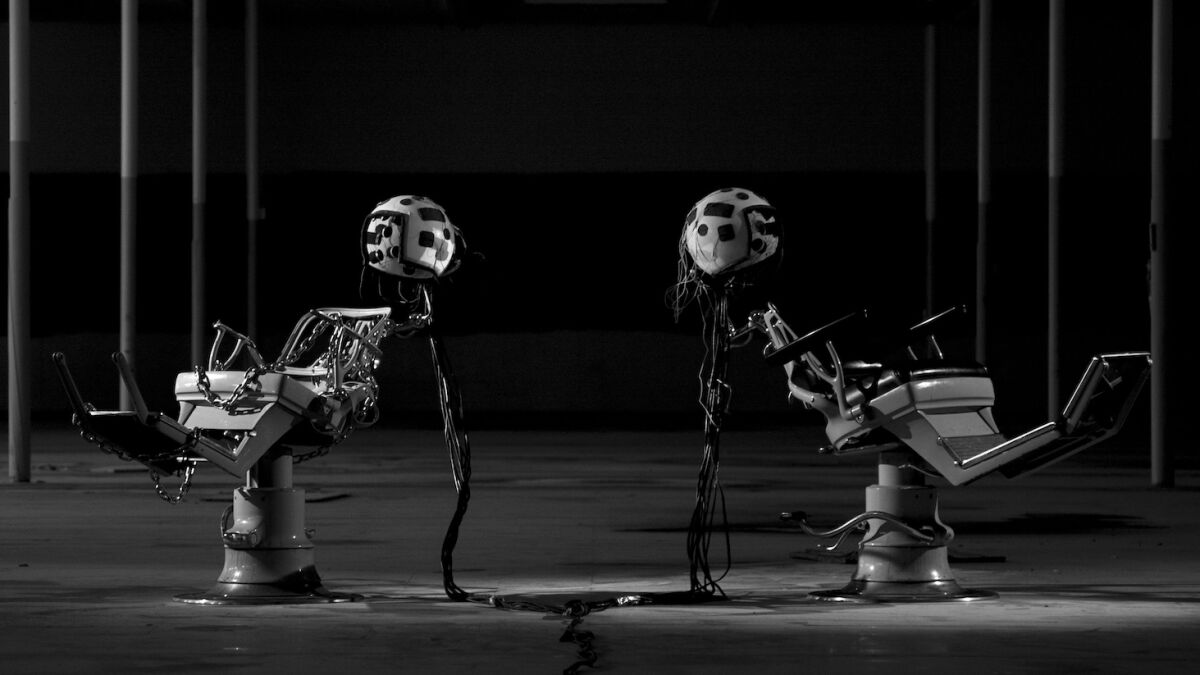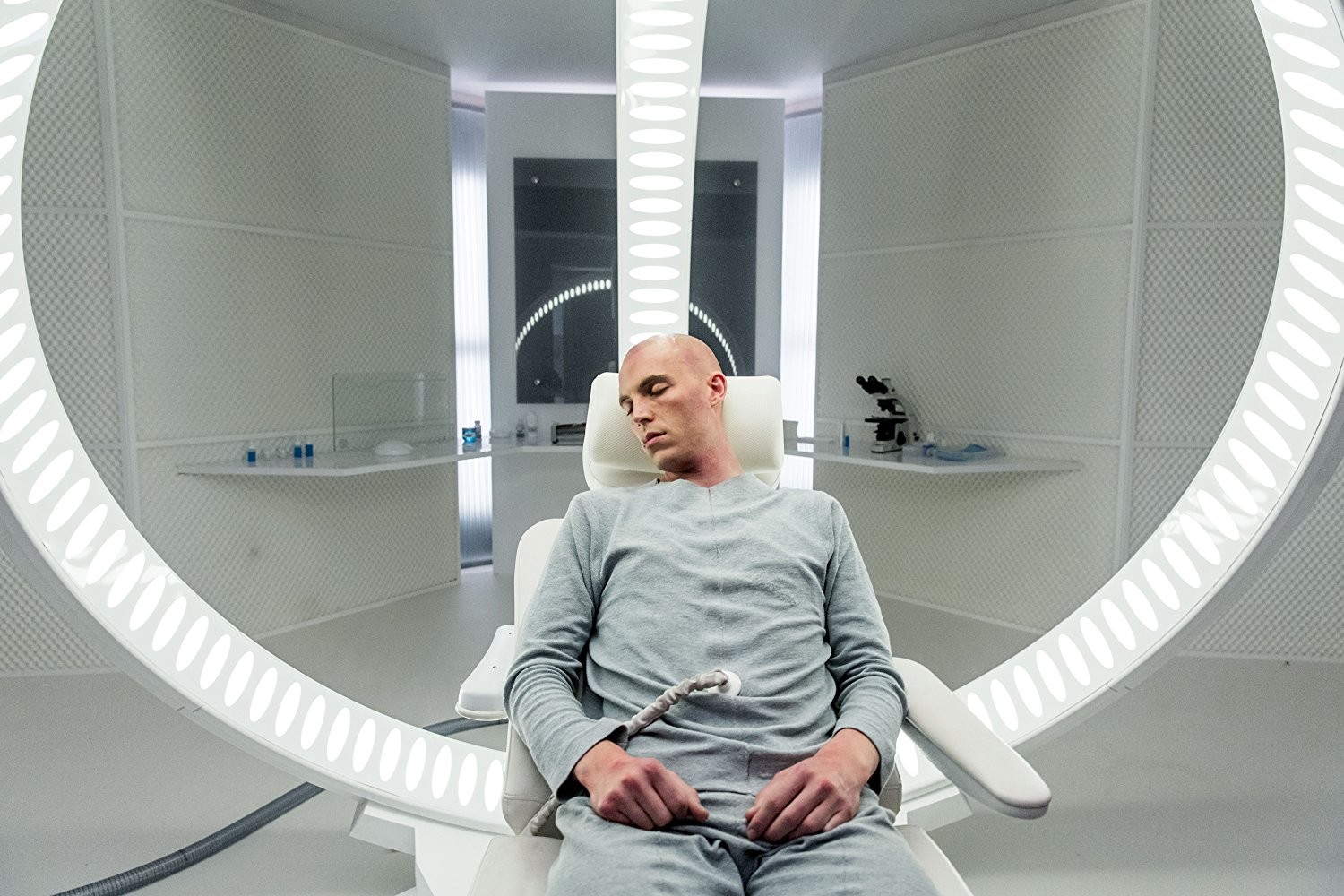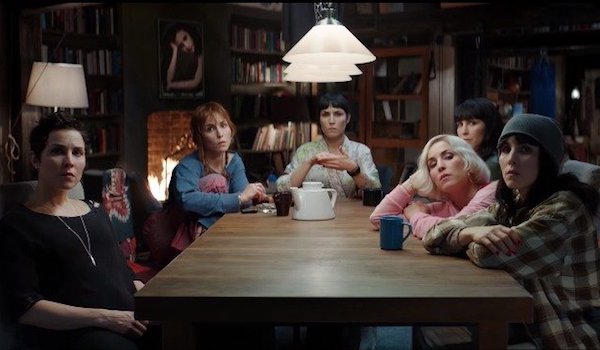
The 2010s was the decade that could arguably be the beginning of “The Future”: technological advancements ensured a cell phone in every pocket and a hi-def screen in every room. The world became an instantaneous global network that runs 24/7 and is immediately accessible by anyone with the right gear. It was the beginning of the next chapter of human history.
As it functions, science fiction stories take the anxieties, hopes, and fears of its time and project them into speculative possibilities: what if you could create a virtual companion? What if you could make yourself younger? What if Superman became the villain?
The films on this list weren’t hits – in fact, some of them were dismissed outright by critics and audiences alike. But these films are reflections of the sort of anxieties and concerns people had in that turbulent decade as technology meshed even closer to the fabric of reality, leaving us as users and components – and how that may not be the best outcome for human beings. Touching on mortality, technophobia, corporate hegemony, and sometimes just telling a good story, here are 10 great 2010s sci-fi films that you may have missed but are worth a watch.
1. Auggie (2019)

Recent retiree Felix (played by character actor Richard Kind) finds his new situation lacking. With his wife consumed by her career and his daughter her relationship, he is also lonely. Using a retirement gift of a pair of augmented reality glasses that allow him to talk to a virtual companion that was created from his subconscious, Felix’s new companion is a young and charming female named Auggie that quickly becomes his closest companion.
Running along similar themes as Her, Kind’s performance brings a dimension of obsolescence – forced into retirement, he finds his life has stopped without his consent. Instead of feeling lost, Auggie becomes a reflection of his own thoughts, fears, and desires, and through their relationship Felix discovers himself.
The really heady ideas also begin to reveal themselves – on whether technology like this is good or bad, how people can quickly accept what should be an alien concept into their everyday life, and how our relationship to technology as we head into the future may begin to blur the lines between illusion and tangible. It is also a reflection of the meta relationships people have begun to gravitate towards through social media and the internet rather than spending time in meatspace.
At a brisk 81 minutes, Auggie is a thought-provoking sci-fi film that takes a look at how the intimate inner desires of a person could manifest itself via technology – and how someone may react to such a seemingly impossible idea. Would you be horrified or make friends with it? Auggie explores this concept with a surprising amount of sensitivity that you may find some of yourself in, as well.
2. Empathy, Inc (2019)

Joel is a down-on-his-luck businessman who invests in a high-tech start-up called Empathy, Inc. The company claims to have developed a revolutionary technology that enables users to experience the lives of others through a virtual reality simulation, but Joel becomes embroiled in a web of deceit and corruption as he tries to unravel the truth behind the company and its founder, the charismatic but dangerous figure.
This sci-fi film explores the dark side of human nature and the consequences of greed and ambition. Not ground-breaking territory but any premise can be carried by how the story is told. Empathy, Inc is a thought-provoking commentary on society’s obsession with technology and the dangers that come with blurring the line between what is real and what is not.
The film succeeds in its ability to create a sense of tension and unease as Joel uncovers the dark secrets of Empathy, Inc. and builds suspense effectively, and the audience is kept guessing until the very end.
Shot in monochrome, the stylistics of the film also add to its mood; strange to see a sci-fi film in black and white, which gives it a noir-like quality that adds to the sense of intrigue and danger.
A compelling sci-fi film that is well worth watching, Empathy, Inc raises thought-provoking questions about the nature of reality and the consequences of our actions. A cautionary tale about the dangers of unchecked ambition, it speaks to the need for empathy and understanding in modern society. Gripping and engaging, it’s an underrated sci-fi film that will leave audiences thinking about their own empathy.
3. Brightburn (2019)

Every kid Brandon Breyer discovers he possesses superhuman powers. However, as he grows older, Brandon’s powers begin to corrupt him, and he becomes a malevolent force intent on wreaking havoc on the world.
Brightburn takes the familiar tropes of the superhero genre and turns them on their head, presenting a dark and disturbing alternative to the more traditional superhero narrative. Instead of birthing a superhero, what if super powers created a villain?
The film’s most significant strength is its willingness to explore complex moral questions about the nature of power and the responsibilities that come with it. That its protagonist is a villain provides a more interesting character than your regular movie superhero, especially when their motive is not particularly heroic. Thought-provoking questions about the ethics of vigilante justice and the limits of empathy and compassion are explored through this darkened lens.
Brightburn is a thrilling and thought-provoking sci-fi horror film worth watching that deviates from the now-staid superhero format. Its subversion of this genre, it strong performances, and its impressive visual effects make Brightburn an engaging and entertaining movie that will leave audiences on the edge of their seats. The film’s exploration of complex moral questions also elevates it above many of its contemporaries, making it a must-watch for fans of the superhero genre.
4. Realive (2017)

Marc is a young man diagnosed with a terminal illness and decides to undergo a radical medical procedure that will allow him to be cryogenically frozen until a cure can be found. He awakes in 2084 as the first cryogenically frozen man to be resurrected. However, the moral and ethical implications of his decision begin to eat away at him as Marc realizes being alive is not the same as feeling alive.
Realive is a 2017 science fiction film that explores the concept of immortality and what it means to be human. The film’s exploration of the ethical and philosophical implications of immortality is one of its greatest strengths and a unique yet humane vision. It raises thought-provoking questions about the nature of life and death, the limits of human understanding, and how we value our lives.
Tom Hughes plays Marc and carries the film on his shoulders through a nuanced and emotional portrayal of a man out of time and place who questions the value of what he has done.
Realive benefits from a strong script that balances its philosophical themes with compelling character development and engaging storytelling. The movie’s pacing is excellent, and it manages to maintain a sense of tension and suspense throughout.
A captivating and thought-provoking sci-fi film worth the time, Realive’s exploration of the concept of immortality and its compelling, uncommon story make it a standout underseen sci-fi film. A powerful meditation on what it means to be human, alive, and understanding why it matters are sure to resonate with audiences of the 21st century.
5. What Happened To Monday (2017)

In a dystopian future in which families are only allowed to have one child due to the earth’s dwindling resources, a family has septuplets and must go to great lengths to keep their children hidden from the government. The solution is to present the seven children as one person, which they carry through their lives into adulthood. This presents a number of problems, both internally and externally, as the seven sisters (named after the day of the week in which they can be the “public” sister) begin to chafe against years of isolation and having to share the same life.
Noomi Rapace delivers a standout performance, playing each of the septuplets while keeping them separate characters. The constant fear of being found out, and put into ‘cryosleep’ until the population is reduced, is a similarly jarring authoritarian concept and one that informs the decisions of each ‘separate’ sister. When one of the sisters doesn’t return after her day, tensions build as the sisters become actively investigated by the Child Allocation Bureau. But the uglier truths of this world are the greatest shock of all.
What Happened To Monday’s explorations of complex moral questions about government control and individual freedom raises thought-provoking questions about the ethics of population control and the balance between individual rights and the greater good. Moreso, it explores the psychological and social effects of losing one’s identity by force and having to present a false front for survival.